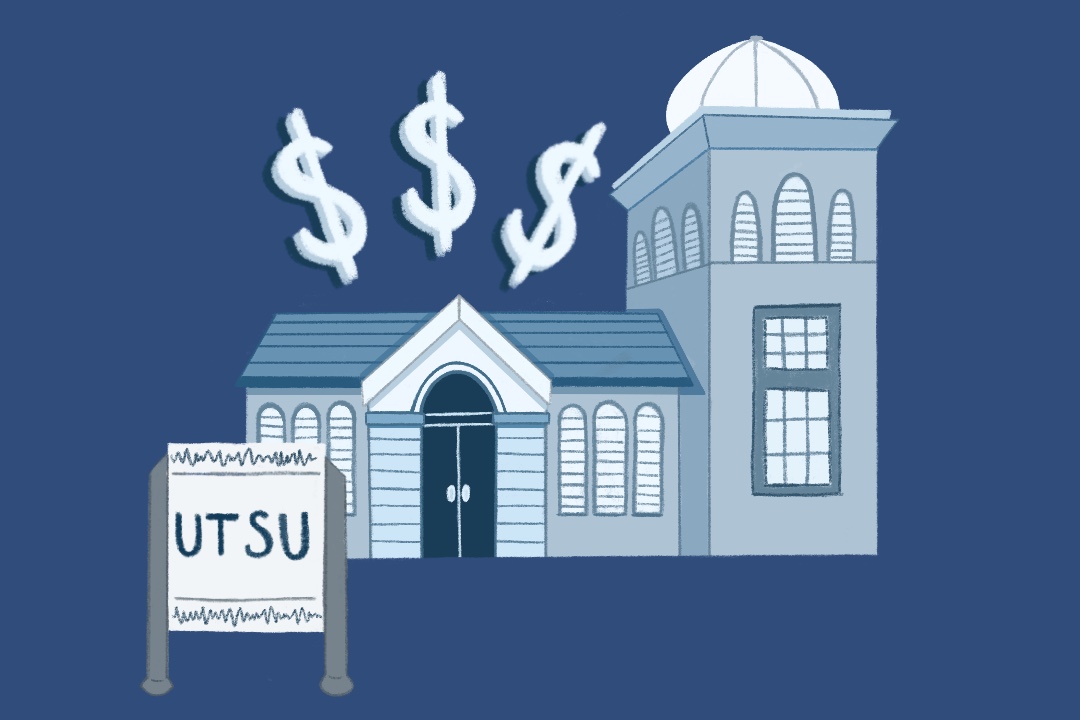A recent piece in The Varsity titled “Striking down the Student Choice Initiative was a mistake” posits that the Student Choice Initiative (SCI) benefitted students by showing them why their tuition fees are so high and pressuring student groups to find efficiencies and increase accountability. However, I would argue that neither of these are the case; the solutions to these problems don’t lie in the SCI but rather in pushing for changes on our campus and in the postsecondary sector as a whole.
The article argues that, by breaking down what each incidental fee goes to and allowing students to choose whether to opt out of these fees, the SCI provided “a clear-cut solution to long-existing problems, like confusingly high tuition.”
Except it didn’t. The article itself admits that “at U of T in particular during the fall 2019 semester, students were able to opt out of an average of $60 of their $850 [of] incidental fees.” In terms of the thousands of dollars that students pay each semester, $60 barely makes a dent. So why is our tuition so high?
In the 2020–2021 academic year, our tuition fees constituted 65 per cent of U of T’s revenue. This follows a trend of declining government funding for publicly funded universities, and universities have grown increasingly reliant on tuition fees to make up the difference. To put it bluntly, our tuition is high because successive governments have decided that the financial cost of higher education shouldn’t burden society at large and have instead shifted this cost onto students to face alone. If education is as essential as the author claims, we should start treating it like the public good that it is and reverse this trend.
But returning to incidental fees: the fees that students weren’t able to opt out of under the SCI included funding for athletic facilities, health & counselling, and academic support, among other things. The article argues that these guidelines are fair “because they prioritize items related to the welfare of all students.”
Does orientation programming not contribute to student welfare? What about programming from the hundreds of clubs at U of T? During the COVID-19 pandemic, the University of Toronto Students’ Union’s (UTSU) Student Aid Program helped students pay for rent, groceries, and other essential costs. Does financial aid not contribute to student welfare? One could argue that not every student uses the Student Aid Program, but I could say the same for campus athletic facilities. Only one of these things was deemed “non-essential,” and it wasn’t the gyms.
The article also suggests that budget cuts would pressure clubs to find more “innovative solutions” to make up for these cuts, and if they’re unable to do so or fail to garner enough student support, “their dissolution is justified.” But clubs can’t easily “innovate” their way out of a slashed budget. Cuts would lead to reduced programming, which would reduce their appeal to students, which would hurt the club. This would have a negative impact on campus life, as clubs would struggle to attract members and try to run engaging programming with fewer resources.
Next, the article suggests that student newspapers like The Varsity could move to a subscription-based model in lieu of a levy. I hadn’t really thought about it until I read this suggestion, but we are lucky to have access to a robust newspaper without a paywall. The Varsity has consistently held the university, student unions, and even governments accountable. It’s hypocritical to criticize the high cost of university and then suggest erecting a paywall in front of coverage that often sheds light on that very subject.
Lastly, the article touches upon student unions. It cites examples of financial mismanagement by student leaders and asks if “U of T students [should] be expected to blindly fund and trust their student unions?”
The answer is no. Students should demand accountability and transparency from their unions at every turn and push for changes when those demands aren’t being met. Beginning on page 44 of the UTSU’s Report on the Canadian Federation of Students is a summary of the decades-long fight to fix the UTSU’s power imbalances, toxic elections, and democratic deficit. Cohorts of students pushed for something better without knowing if it would ever be achieved. Today, there’s still valid criticism of the UTSU, but having a well-funded student union that provides high-quality services and advocates for the student body is significantly better than the alternative: the absence of one.
The article rightly points out that many students aren’t aware of what their fees go to. Student groups must do a better job of engaging with students to address this problem. But should we treat our clubs and unions like businesses and apply a ‘use it or lose it’ mentality toward their programming and services? I certainly don’t think so.
Tyler Riches is a fourth-year human geography, urban studies, and women and gender studies student at University College. They were the 2020–2021 vice-president, public & university affairs of the University of Toronto Students’ Union.


